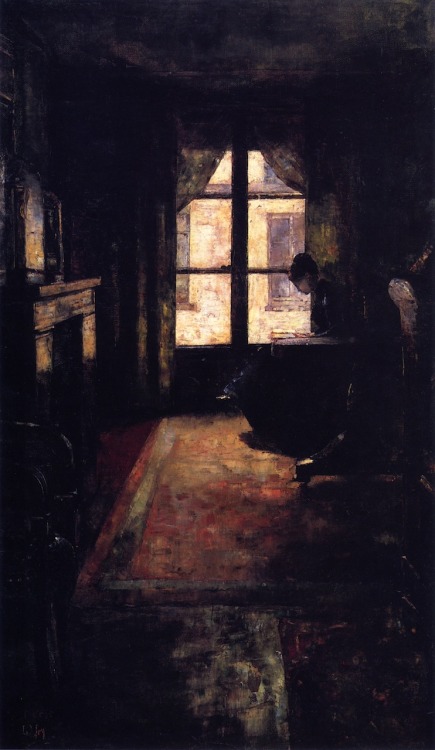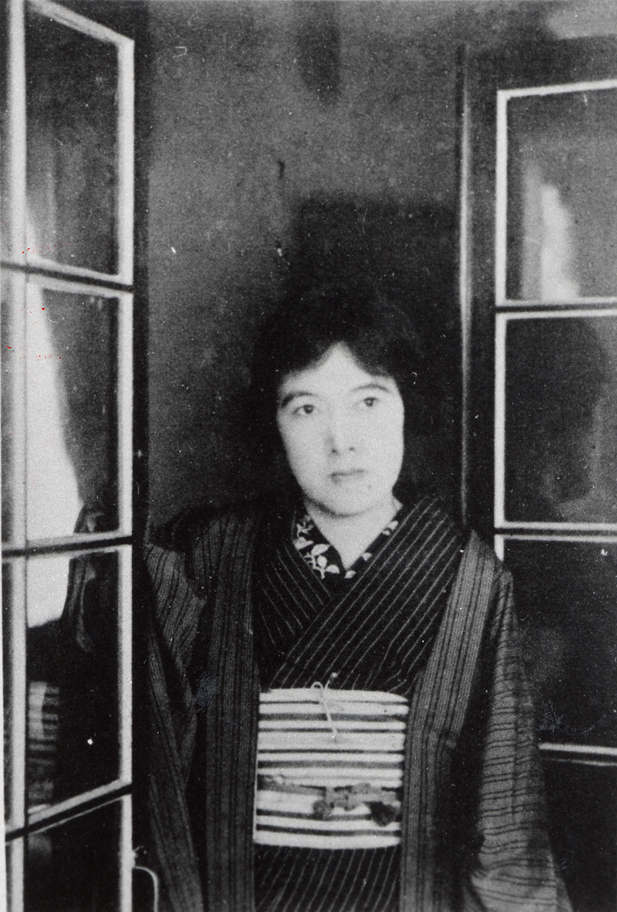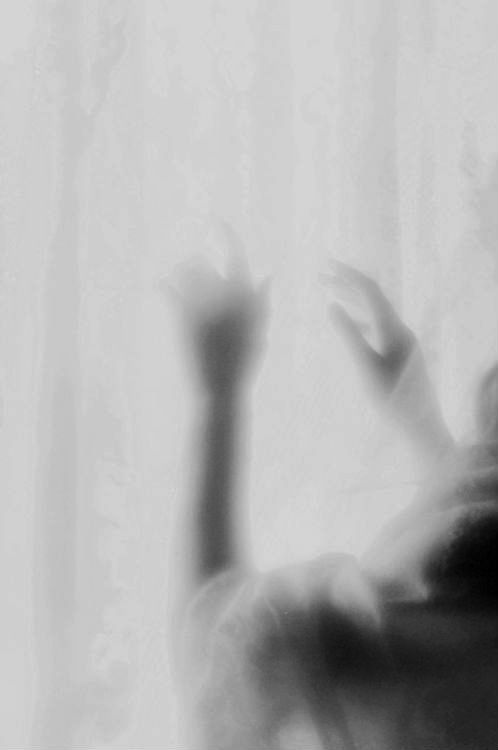Threads of incense drift upwards
unending in my silent room—
a smoky portent, like cracks on a tortoise shell—
nine perfumed plumes twist.
An old mirror hides light with darkness—
embers flare within sullen ash.
The many folds of my silk curtain part—
what is most precious faces the wind.
Hyesim
tr. Ian Haight & T'ae-Yong Ho
.
.
6.27.2013
curves of incense
6.24.2013
Parisian interior

Lesser Ury (German, 1861-1931), Parisian Interior, 1881. Oil on canvas, 55.5 x 32.5 cm. Private collection.
.
.
6.21.2013
curtain of light
6.19.2013
the view inside
Labels:
figure in the window,
landscape,
painting,
Paul Delvaux,
window
6.18.2013
windows facing windows
Vilhelm Hammershøi, Interior of Courtyard, Strandgade 30
"In December 1898 Hammershøi moved into a seventeenth-century merchant house at Strandgade 30, Copenhagen. For the decade that he resided there in a second-floor apartment he painted more than sixty canvases depicting the rooms of the dwelling, often including his wife, Ida. Influenced by Dutch seventeenth-century painting, particularly the quiet interiors of Jan Vermeer and Pieter de Hooch, Hammershøi's meditations on the interior spaces of his apartment are psychologically enigmatic. Here he renders the building's interior courtyard, with strong illumination focused on an open window. Three doorways at lower right, each obscured, lead, respectively, to the street, to a staircase, and to the cellar. The eccentric and irregular geometries created by walls and windows, overhangs and thresholds, in conjunction with the essentially monochromatic gray palette punctuated by restrained mauve, endow the composition with a distinctly disturbing quality. The opened window and doorways suggest human presence, but the overall effect is one of profound absence."
more
here .
6.15.2013
through the window of my hut
Through the window of my hut:
The sound of a koto
Searching for the right melody
Mingling with the sound
Of the wind blowing in the pines.
Otagaki Rengetsu
.
6.14.2013
girl in a window

The girl in a springtime window
Calls to awaken a young priest
Barely a man
His sutras toppled
By her dangling sleeve
うらわかき僧よびさます春の窓ふり袖ふれて經くづれきぬ
Akiko Yosano
more
.
.
6.13.2013
woman knitting by a window
6.11.2013
the artist at the window
Paul Klee sits weeping
behind the windowpane
he watches the people go by
and they all become lines
and he sees only the lines
and the lines go by
in front of the windowpane
Peter Härtling, Paul Klee
Paul Klee, The artist at the window, 1909
hinter den fensterscheiben weint PAUL KLEE
er sieht die leute vorübergehn
und sie werden lauter striche
er sieht lauter striche vorübergehn
und die striche gehen vor den scheiben.
.
behind the windowpane
he watches the people go by
and they all become lines
and he sees only the lines
and the lines go by
in front of the windowpane
Peter Härtling, Paul Klee
Paul Klee, The artist at the window, 1909
hinter den fensterscheiben weint PAUL KLEE
er sieht die leute vorübergehn
und sie werden lauter striche
er sieht lauter striche vorübergehn
und die striche gehen vor den scheiben.
.
6.09.2013
6.05.2013
rain window against death
She went upstairs, step by step, very slowly. When she came to the
bedroom door with the jugs and glasses on the table outside, she paused.
The sour-sweet smell of illness slightly sickened her. She could not force
herself to go in. Through the little window at the end of the passage she
could see flamingo-coloured curls of cloud lying on a pale-blue sky.
After the dusk of the drawing-room, her eyes dazzled. She seemed fixed
there for a moment by the light. Then on the floor above she heard
children's voices—Martin and Rose quarrelling.
"Don't then!" she heard Rose say. A door slammed. She paused. Then
she drew in a deep breath of air, looked once more at the fiery sky, and
tapped on the bedroom door.
The nurse rose quietly; put her finger to her lips, and left the room.
There were so many of them in the room that she could get no further than the
doorway. She could see two nurses standing with their backs to the wall
opposite. One of them was crying—the one, she observed, who had only
come that afternoon. She could not see the bed from where she stood.
But she could see that Morris had fallen on his knees. Ought I to kneel
too? she wondered. Not in the passage, she decided. She looked away;
she saw the little window at the end of the passage. Rain was falling;
there was a light somewhere that made the raindrops shine. One drop
after another slid down the pane; they slid and they paused; one drop
joined another drop and then they slid again. There was complete silence
in the bedroom.
Is this death? Delia asked herself. For a moment there seemed to be
something there. A wall of water seemed to gape apart; the two walls
held themselves apart. She listened. There was complete silence. Then
there was a stir, a shuffle of feet in the bedroom and out came her father,
stumbling.
"Rose!" he cried. "Rose! Rose!" He held his arms with the fists clenched
out in front of him.
You did that very well, Delia told him as he passed her. It was like a
scene in a play. She observed quite dispassionately that the raindrops
were still falling. One sliding met another and together in one drop they
rolled to the bottom of the window-pane.
from The Years, by V. Woolf
.
bedroom door with the jugs and glasses on the table outside, she paused.
The sour-sweet smell of illness slightly sickened her. She could not force
herself to go in. Through the little window at the end of the passage she
could see flamingo-coloured curls of cloud lying on a pale-blue sky.
After the dusk of the drawing-room, her eyes dazzled. She seemed fixed
there for a moment by the light. Then on the floor above she heard
children's voices—Martin and Rose quarrelling.
"Don't then!" she heard Rose say. A door slammed. She paused. Then
she drew in a deep breath of air, looked once more at the fiery sky, and
tapped on the bedroom door.
The nurse rose quietly; put her finger to her lips, and left the room.
There were so many of them in the room that she could get no further than the
doorway. She could see two nurses standing with their backs to the wall
opposite. One of them was crying—the one, she observed, who had only
come that afternoon. She could not see the bed from where she stood.
But she could see that Morris had fallen on his knees. Ought I to kneel
too? she wondered. Not in the passage, she decided. She looked away;
she saw the little window at the end of the passage. Rain was falling;
there was a light somewhere that made the raindrops shine. One drop
after another slid down the pane; they slid and they paused; one drop
joined another drop and then they slid again. There was complete silence
in the bedroom.
Is this death? Delia asked herself. For a moment there seemed to be
something there. A wall of water seemed to gape apart; the two walls
held themselves apart. She listened. There was complete silence. Then
there was a stir, a shuffle of feet in the bedroom and out came her father,
stumbling.
"Rose!" he cried. "Rose! Rose!" He held his arms with the fists clenched
out in front of him.
You did that very well, Delia told him as he passed her. It was like a
scene in a play. She observed quite dispassionately that the raindrops
were still falling. One sliding met another and together in one drop they
rolled to the bottom of the window-pane.
from The Years, by V. Woolf
.
Subscribe to:
Comments (Atom)





.jpg)


